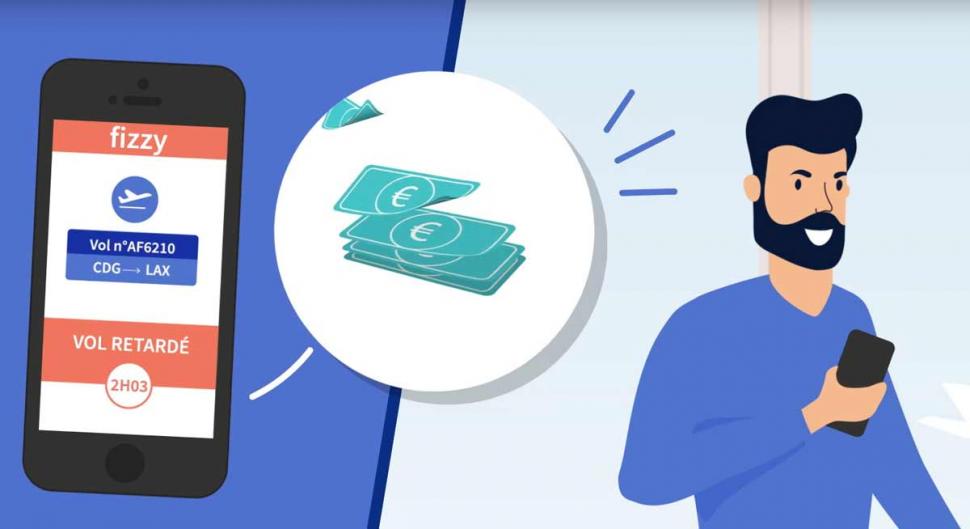Axa uses blockchain to compensate for aircraft delays
The insurer offers innovative late flight insurance that combines parametric insurance and decentralized smart contracts.
The commercial promise of a new offer launched by Axa and dubbed Fizzy is tantalizing: to fly and be automatically reimbursed one third of the ticket price if the flight is more than two hours late, whatever the reasons and the everything without the least administrative procedure to make or complaint file to constitute.
The principle of passenger compensation is nothing new in Europe. European regulation EC 261-2004 even provides for such compensation as soon as a delay reaches more than three hours. And even if several websites have started to help you build files, the process is often tedious.
Bridging two innovations for a new offer
In fact, the Fizzy proposal combines two promising innovations in the insurance and finance sector.
First, it uses parametric insurance where the triggering of the client's compensation depends on the occurrence of an event - here a flight delay of more than two hours - and no longer an injury for the insured. No need for the subscriber to prove any damage: he is compensated because he chose to cover himself against this risk.
Secondly, the offer uses blockchain technology, which acts as a third party for certification between the insurer and the insured, thanks to its decentralized, tamper-proof, blockchain registry function.
Axa did not choose the blockchain used in the context of the Bitcoin cryptocurrency, but the Ethereum solution, set up to facilitate the execution of smart contracts (smart contacts)
No business goals yet
Axa is careful not to post commercial goals for Fizzy. They will, of course, depend on the reception of customers in the face of the "promise" of insurance, but also on the ability of the French insurer to establish commercial partnerships such as airlines or travel agencies.
The offer is for the moment limited to flights in both directions between Roissy-Charles de Gaulle airport and the United States, about forty destinations for nearly 20,000 flights per year. It will cost from 5 to 20 euros per ticket for a customer.
The amount of the compensation, which varies according to the price of the flight and the probabilities of delay anticipated by the insurer, is definitively set upon subscription. It represents between 10 and 40 times the premium paid. The customer's bank details are not entered in the blockchain and are only in the hands of the payment service provider, Worldpay.
An innovation that is worth testing
For Axa, Fizzy has a clear test value. First, the strategy of operational efficiency and concentration on profitable activities advocated by management exposes Axa to a growth deficit. The stakes are crucial for the future course of action, which trades at less than 10 times the expected net income in 2018, a discount of more than 30% compared to the average of the last ten years (13.8 time).
The insurer must now demonstrate that the transformation it is conducting is not limited to simply optimizing the costs of its traditional activities, but that it will be able to create new value-added services for customers.
Then Fizzy, driven by Axa Next, is the result of the cooperation of several entities of the group, including Axa Parametrics - for pricing - or Axa Corporate Solutions for the reinsurance component.
Finally, if successful, other innovations are already in the boxes to combine blockchain and parametric insurance.
Tomorrow, it may be possible to cover easily - and automatically - against the risk of bad weather for an important event. For example, getting a cash prize if, five days before the scheduled wedding date, the weather forecast indicates rain for the day. What to leave time to find a fallback solution and, for example, to rent arbours to shelter the guests ...
